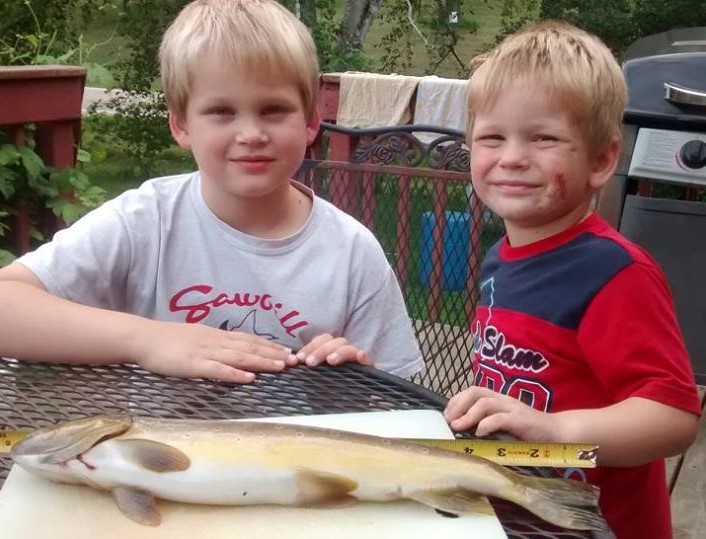
This is the version of the Mercury, in trout, from coal argument that The Winona Daily News and MN Outdoor News finally published in Summer 2017. Note, to be published in the paper it seems like the right amount of math is none. Oh well.
One of the joys of living in Winona is that it takes minutes, not hours, to get to a fishable trout stream. Our family lives near a creek, and on opening day back in April, Henry, my six year old, caught a nice 8 inch brown trout on the first cast that made it into the water. An added bonus - he was using a Mepps style spinner that he'd made at cub scouts earlier that month. "Can we eat it Dad?" he immediately asked. 30 minutes later he was telling everyone about how good his trout had tasted.

Now that school is out, the boys are out to the creek at least once a day. They love fishing, and last week after another successful meal Henry said, "Dad I think we should have trout for breakfast every day."
We can't. Or rather, we shouldn't. There hasn't been a fish survey on "our" creek recently, and the MN Department of Health doesn't have fish consumption advice for the stream. They do have advisories in place for Gilmore Creek, which is close enough to seem relevant. For children under 15 and women who may become pregnant, 1 meal per week is the recommended limit. The Largemouth Bass he caught in the Mississippi on Sunday was about 15", which makes it a once a month meal for Henry.
If you look through the fish consumption advisory (http://www.health.state.mn.us/divs/eh/fish/eating/sitespecific.html) the seemingly most pristine waters in the state have advisories in place. The main culprit is Mercury, which is emitted from coal-burning electrical power plants. Coal is reduced plant matter, and trace amounts of heavy and radioactive metals in the soil are taken up by plants, compressed into coal over eons, and puffed out of the smoke stack when you turn on the air conditioner, or stare into the fridge, wondering what to eat instead of trout. Mercury is scavenged out of the air by rain, some of that rain ends up in lakes, and some of that Mercury enters the food chain. It takes centuries for the Mercury to precipitate out of the water column, but with heavy metals, less is better!
Just recently GW Bush's "Mercury and Air Toxics" standards for Coal burning power plants went into full effect, although with the current administration, everything seems in flux. These pollution standards dramatically reduce the Mercury emissions from electric power plants. Critics of the rule claimed that the standards would incur a dramatic increase in electrical rates, but I didn't notice – we still pay 10-12 cents per kWh.
When the president talks about bringing the coal industry back and reducing regulation, he's talking about reducing the number of trout your kids and my kids can safely eat. If cars didn't have seatbelts or airbags they would be cheaper to manufacture. If Hormel used road salt to make bacon, it would be cheaper to buy. If highways didn't have lines painted on them, they would be cheaper to build and maintain. If coal plants have less pollution control equipment, the plants will be cheaper to run. Is that the world you want your kids to inherit?